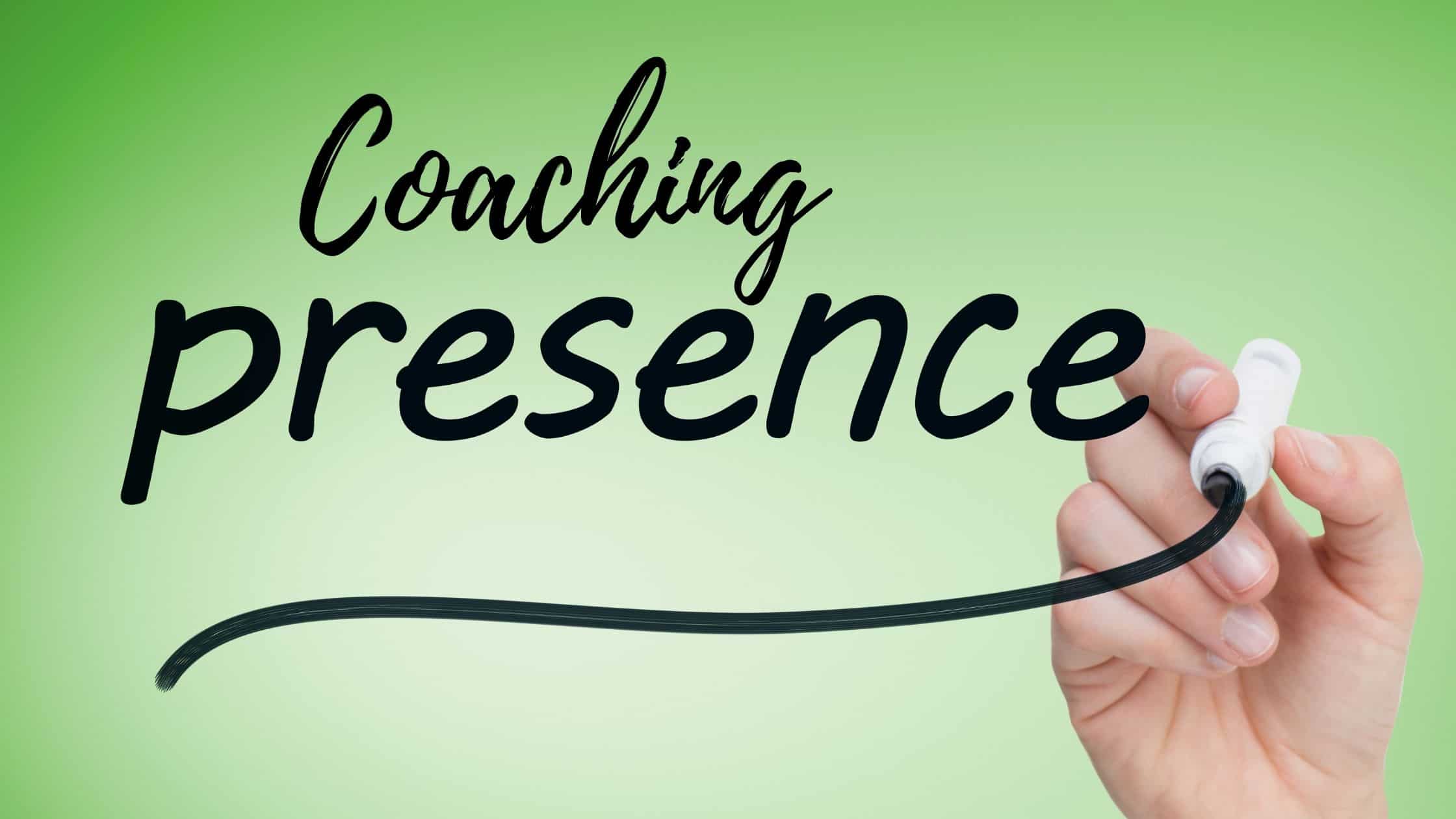Presence is the latest buzzword. However, that doesn’t diminish its impact. Coaching without presence is futile because it is fundamental to making a difference. The International Coaching Federation lists “coaching presence” as one of its eleven core competencies for coaching. Presence in coaching means being fully present with your coachee. It is a way of being that facilitates growth and change through connection. If you aren’t fully present during your coaching session, you aren’t coaching; you are managing.
ICF describes the competency of presence as being fully conscious and creating a spontaneous relationship with the coachee with a style of being open, flexible, and confident. To successfully demonstrate coaching presence during a coaching session, exhibit these characteristics:
- Present, undistracted, and in the moment
- Flexible without any preconceived notions
- Mindful with empathy, warmth, and calmness
- Reliant upon your intuition
- Fully open to not knowing the answer and taking risks with the exploration of the issue
- Leverages humor to create lightness and energy
- Confidently pivots perspectives
- Courage to experiment with new possibilities
- Confident while working with strong emotions
Coaching presence is the most potent skill in your coaching process. Your level of presence will make or break your coaching session. Despite the digital way of the world today, people crave the human touch. However, being present during your coaching sessions must be non-judgemental, genuine, and create safety for the coachee. Therefore, you must master the skill of presence. Otherwise, you are just another manager.
What does coaching presence look like?
How you show up to the coaching session will determine how present you are. Here’s how to show up with presence.
- Being a coach, not something else. Therefore you can’t show up as a manager, trainer, mentor, or friend. Instead, have presence during coaching conversations by facilitating and supporting the coachee. Do not tell, solve, fix, or advise.
- Showing up with the coachee’s best interest in mind. Challenge them when necessary to support them in reaching their goals.
- Being in the moment with a laser focus on the coachee. Eliminate any distractions, including your preconceived thoughts and judgments. Coaching presence is listening to understand by using open-ended questions that enable the coachee to explore themself more deeply.
- Being dedicated to the coaching process. Use deep observation to encourage the coachee to make additional discoveries. As a result, you create an environment where you can explore ideas and solutions together.
How can you become present during your coaching conversations?
The most important thing you can do in a coaching conversation is being fully present and in the moment. Control your thoughts, judgments, and responses. Improve your coaching presence by keeping these critical tips in mind.
- Coaching is about the coachee. It is not about you. Being present is having confidence in not knowing and not identifying a solution. Instead, you help shift their perspectives so the coachee can explore possibilities.
- Get comfortable with silence. Being present during coaching conversations involves periods of silence. Additionally, you can intentionally build in silence to allow the coachee to share what is on their mind.
- Listen to understand instead of to respond. Effective coaching requires hearing what the coachee is saying and what they aren’t. Active listening is the only way to hear something new or surprising, creating more possibilities to explore solutions deeply.
- Speak the truth in what you are observing. Be present during a coaching conversation by calling out what you observe and trust your instincts to support the coachee to achieve clarity, increase their self-awareness, and find the way forward.
- Review your coaching session to self-reflect on your level of presence. For example, who were you as a coach? What internal conversations were happening in your head? What influenced your coaching presence, such as the motivations, instincts, and values that guided you during the conversation?
Managing is telling people what to do. Coaching is helping people explore possibilities, identify different perspectives, and craft their way forward. Coaching presence allows you to connect with the coachee’s experience in a positive and enriching way. Give your coachee your full attention during the coaching conversation by suspending judgment and remaining aware of what is happening in the moment. By improving your presence during coaching, you pivot from doing coaching to being coaching.


